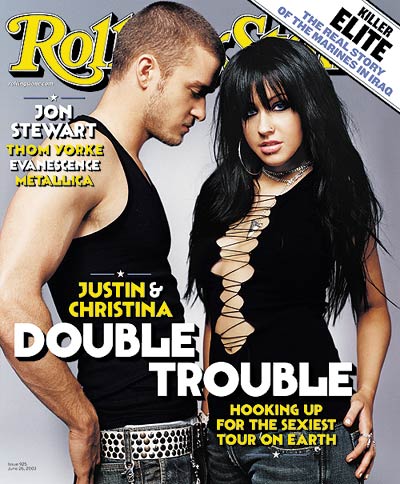|
By: J. Scott "Skip" Rudsenske and James P. Denk
|

"So ya wanna be in da reckid bizness huh, kid?" If so, there are certain things you should know aboutthe industry that can help you to get heard and possibly, to get a contract.First, many steps must be taken before you walk on stage at MadisonSquare Garden. And second, while there is no guaranteed method of becominga musical icon, there are two very important questions to answer as you begin pursuit of a professional music career: "How do I know what record company A & R (artist and repertoire) representatives are looking for?" and "How do I get my music heard by one of these representatives?"
The National Academy of Recording Artists & Sciences (NARAS) often hold symposiums to help answer these questions. The symposiums will address what A & R representatives are looking for, with consideration given to the constraints placed upon them by record company marketing guidelines. It has been determined, that generally, the representative looks at the overall "package" offered by the artist, including (1) the artist's performance ability, (2) the sound of the artist's recorded music on tape or CD, (3) the overall look and identifiability of the band or artist. At Austin's South by SouthWest and other music conferences, this usually is a primary topic of discussion at A & R discussion panels.
Of course, knowing the basic interests of A & R representatives does not answer the question, "How do I know what these guys are looking for?" The fact is, each A & R representative has his or her own way of finding and selecting talent, given the guidelines established by the parent record company; and it is important to understand that each representative and record company is different. Rather than becoming frustrated with this lack of conformity (which requires the artist to "start over" again with each new representative and company), an artist must learn to adapt to a variety of situations.
So, how do you introduce yourself to the music industry? At the NARAS conference in LA, some A&R representatives told stories of how they signed bands on the basis of a phone recording system or cheaply made demo tapes. However, these instances are rare, and the reality is that the music business runs on profit, not on human interest stories about the few small-time bands who hit it big. If you are serious about a career in music, you can maximize your chances of getting seen and heard by developing your craft, adopting a professional attitude preparing the best promotional package possible that demonstrates your development and talent.
It is important to know that it is not the creation of the promotional package that is your goal. It is the development of your craft as an artist should be the main focus. It is also important to understand that major record labels to not develop raw talent to become recording artists. Musical artists' develop themselves for presentation to the labels. Today's youth, or even their parents, who believe that Ricky Martin or Brittany Spears were "discovered" and became famous because they have raw talent have a misconception of the development it takes to become noticed and eventually successful. Most of the youth market that purchases his records were not even born when Ricky Martin began his development as a recording artist. He has become successful from more than ten years of hard work, dedication and commitment to his craft. This over ten years of missed opportunities, rejections, career choice questions and, sacrifices.
  
No matter the career, no one can go from the mail room to the board room without years of development. Raw talent is only one to five percent of what it takes to even get noticed in the industry. Most people know to become a lawyer, a student would go to college, get good grades, go to law school, get good grades, and pass the bar. Once a lawyer you then have to develop your craft as a lawyer to be a good lawyer that may or may not equate to success. The path to becoming a successful artist is a little less definitive but requires a path of development just like that of becoming any professional. My best advice is to read music business books and articles , talk with professionals in the business and research the background of your favorite artist to obtain a better of understanding of what a person must accomplish to approach a career in the music industry as a recording artist.
After years of development and altering your promotional package based on your development before sending any package to any record label you will need to have a high-quality recording. This process requires patience, persistence, and a professionalism. Not coincidentally, these qualities are exactly those (along with talent, of course) preferred by A & R representatives seeking new artists. A high-quality recording will prove that you can produce exceptional work on your own.
In addition to a high-quality recording, your package should include a professionally prepared photograph that captures the essence of your band. One very effective promo photo shows the Red Hot Chili Peppers suspended in mid air (with the help of trampolines, unseen, of course), in front of a very large 12th Century mural. It is creative, original and exciting. To complement your photograph, prepare a professional biography and fact sheet for the label representative. Keep it short and to the point--a single page is sufficient. Finally, include some "tear sheets" or press reviews (choose only a few of the best). These demonstrate to the representative that your performance and musical abilities have been reviewed favorably by knowledgeable, objective individuals.
Once you have a promotional package, it is time to address the question, "How do I get my music heard?" I believe an artist should start his or her recording career as soon a possible. As part of an artist's development, a relationship with a reputable independent record label is a good way to begin. Your interest in these smaller, but more accessible companies, could prove one of your biggest selling points to a major label later. As stated before major labels do not spend time or money developing raw talent. Independent record companies can assist in developing your career, and often will be more tolerant than larger labels of non-mainstream styles. They are looking to make their profits by signing promising unknowns with "potential." You will receive much more exposure, and are much more likely to get noticed by the majors through affiliation with the smaller label, than by blindly presenting four-song demos to the majors.
Finally, it is important to remember that while A & R representatives may be looking for what they like, record companies are in the business of promoting the arts only to the point that the arts put money in their pockets. This is reality. It means that what is hot in June may very well be cold by November, and that a label that does not want you today may call you tomorrow..
When Reggie Jacksonn was asked if it was luck, when he hit two homeruns in one world series game, he explained "Luck is when preparation meets opportunity." Therefore, develop your craft, produce the music you believe in, be persistent and maintain a professional approach. With this development will come the preparation you need for the opportunities that are presented which may just equate to a couple of homeruns.
  
|